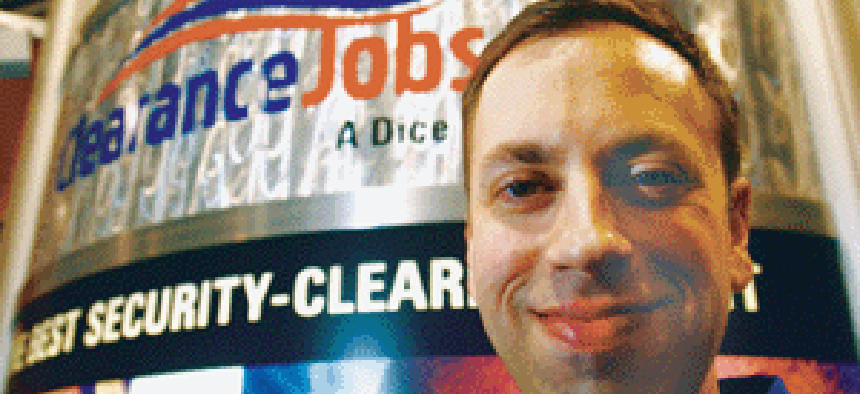Evan Lesser | Survival Guide: Perspectives from the field

In the late 1990s, when Evan Lesser was working as an IT professional for a defense contractor, his boss asked him one day to find five job candidates with security clearances to work on a Navy contract the company had.
In the late 1990s, when Evan Lesser was working as an IT professional for a defense contractor, his boss asked him one day to find five job candidates with security clearances to work on a Navy contract the company had. He placed ads online and in the Washington Post, and got hundreds of resumes from candidates who did not have clearances.As he sifted though his stack looking for a match, he came up with an idea for a secure, online job board that listed only job seekers with current security clearance and would restrict access to authorized government contractors. Thus, ClearanceJobs.com was born and launched in July 2002.Dice.com, a provider of online recruiting services for technology, engineers and security-cleared professionals, acquired the Web site in September 2004. ClearanceJobs.com now has registered about 64,000 job seekers with security clearances. Lesser talked with Staff Writer Roseanne Gerin about the security clearance problem and perceptions. How in demand are security clearances? There are actually more jobs open than candidates to fill them; in other industries there are lots of candidates, but not enough jobs. You can see candidates jumping between companies a fair amount with shorter tenures than you might expect in other industries.Also, if you look at the salaries, candidates would not be getting paid a premium if it were not a hot industry where there was demand. In our recent salary survey, we found that cleared candidates were earning about 24 percent more than the equivalent person in the private sector who did not have a clearance. If you were doing a network-engineering job for Lockheed Martin Corp., you'd be making 24 percent more than the person doing the same job for the Coca-Cola Co. or Ford Motor Co. What are companies doing to keep workers with clearances? The first is obviously the salaries. They're getting paid a substantial amount, and the higher the clearance level, the higher the pay.We're seeing companies do things they haven't done in the past. For example, they're offering higher signing bonuses, they're offering 401(k) matching sooner, and they're offering better things from the start. ManTech International Corp. is one defense contractor that's very popular. Every six months, they give away a BMW to one of their new candidates.The other thing is training. Candidates are able to get training and certifications at no cost to themselves. It is less expensive for a company to hire someone who does not have the right skills but who has the right clearance, and get them certified and trained, than to hire someone who has the skills in place but no clearance. It would take almost two years to get that candidate's clearance.A larger defense contractor called us and said it needed 15 candidates with the highest-level clearance as well as a polygraph test, which gains candidates access to certain types of information. We asked what skills the candidates had to have. [The contractor] said, "I don't care. As long as they have the right clearance, we'll train them. They only have to have the clearance and a pulse." What is the most difficult thing about getting a security clearance? It can be frustrating for job seekers, because when they search through help-wanted ads, they see so many jobs for which they must have a clearance. There's really no way for the average job seeker to go out and get one. For the employers, it's simply the fact that they have so many open positions, and there are just not enough candidates to fill them. It's definitely a supply and demand issue. Did you have a security clearance when you worked for CACI International Inc.? When CACI hired me in 1995, it had a contract coming up and was going to need someone with my skills. The company told me to fill out the paperwork and wait for my clearance. I waited, and waited, and waited, and waited, and 14 months later I finally got my clearance and was able to do the job.During those 14 months, CACI paid me a salary, but I had to be escorted to a bathroom and into certain offices, because I did not have my clearance. But also during those 14 months, I did a lot of reading.

WT:
Lesser:
WT:
Lesser:
WT:
Lesser:
WT:
Lesser:

Evan Lesser
WT:
Lesser:
WT:
Lesser:
WT:
Lesser:
WT:
Lesser:
NEXT STORY: WorldCell to acquire Mobile-Mind